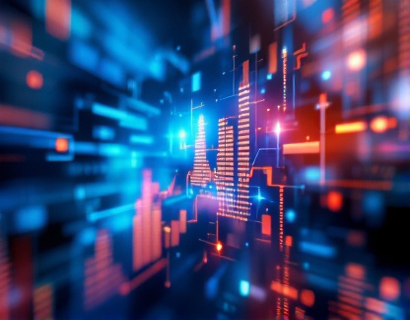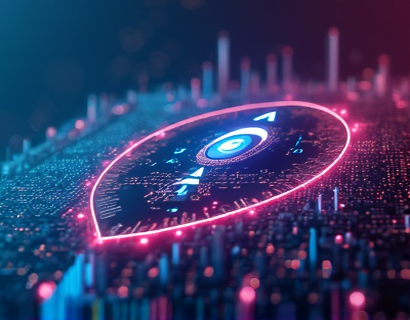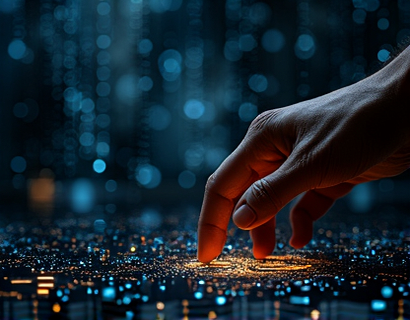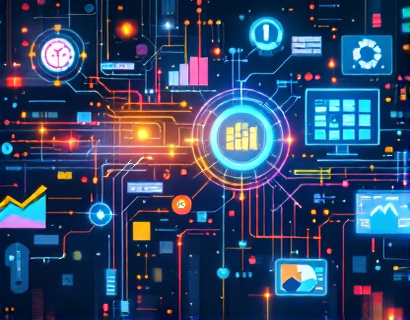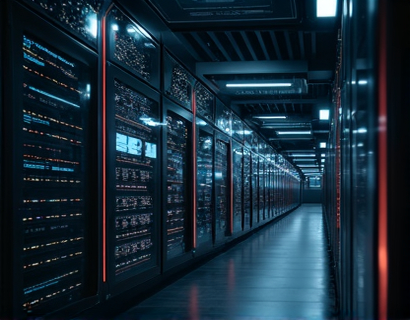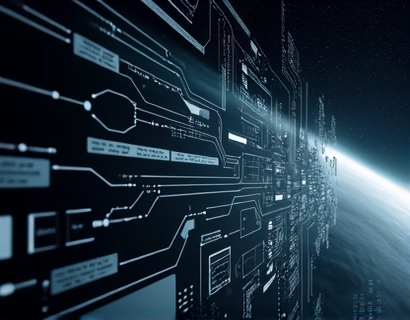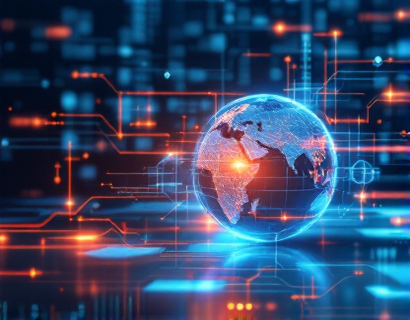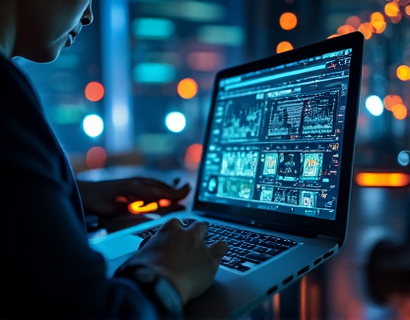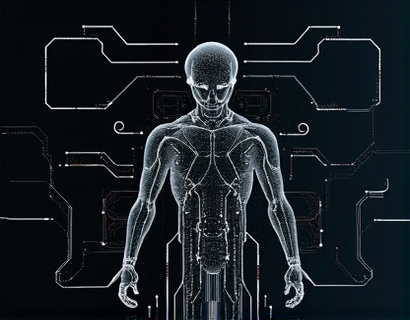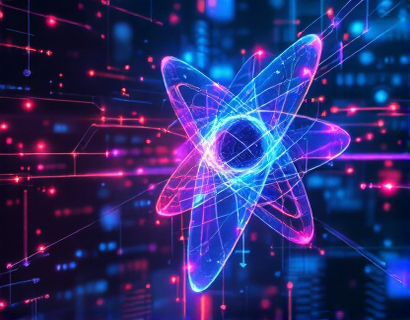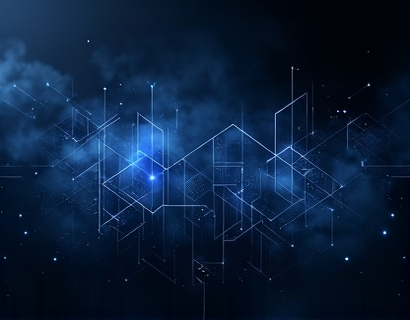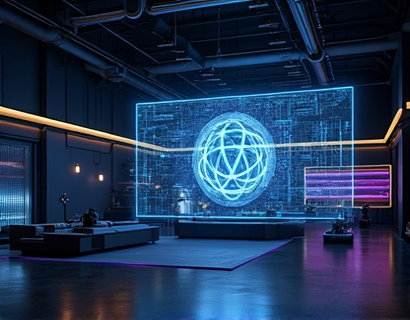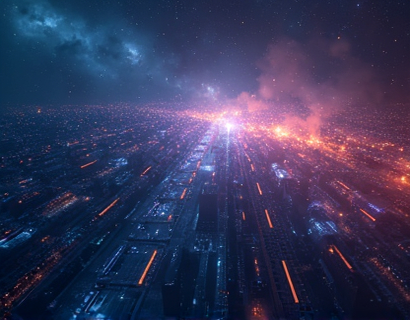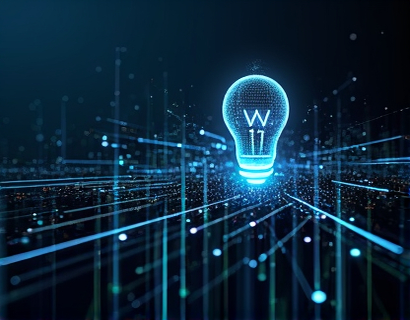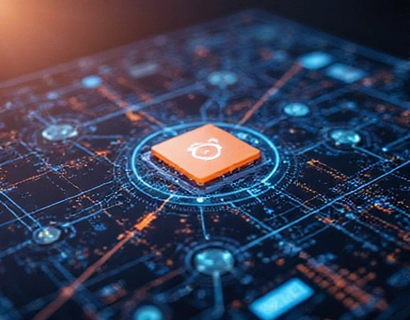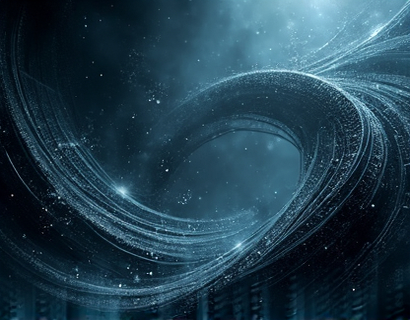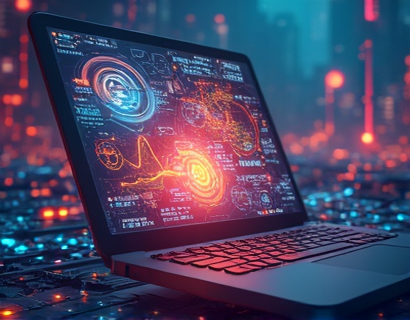Decentralized AI and Crypto: Transforming Ucosystem Applications for Enhanced Productivity and Innovation
The integration of decentralized technologies with artificial intelligence (AI) is ushering in a new era of digital innovation. This convergence is redefining how we approach productivity and task management, offering unprecedented opportunities for efficiency and creativity. By leveraging the strengths of both decentralized systems and AI, developers are creating applications that not only simplify daily tasks but also enhance overall productivity in ways previously unimaginable.
Decentralized applications, or dApps, operate on blockchain networks, eliminating the need for central authorities and intermediaries. This decentralization brings numerous benefits, including increased security, transparency, and user control. When combined with AI, these applications gain the ability to learn from data, adapt to new inputs, and perform tasks that traditionally required human intervention. The result is a powerful synergy that is transforming various sectors, from finance and healthcare to education and beyond.
Enhancing Productivity with Decentralized AI Solutions
One of the most significant impacts of decentralized AI is in the realm of productivity tools. Traditional productivity software often relies on centralized servers, which can be vulnerable to outages, data breaches, and censorship. Decentralized AI-powered tools, however, distribute data and processing across a network of nodes, ensuring higher reliability and security. For instance, a decentralized task management application can use AI to prioritize tasks based on user behavior and deadlines, all while maintaining data privacy and integrity.
AI algorithms can analyze vast amounts of data to identify patterns and make predictions, which is invaluable in a decentralized environment. For example, a decentralized project management tool can use AI to forecast project timelines, allocate resources efficiently, and detect potential bottlenecks before they become issues. This proactive approach not only saves time but also reduces stress and increases overall team productivity.
Simplifying Daily Tasks through AI-Driven Automation
Daily tasks can be tedious and time-consuming, but decentralized AI applications can automate many of these processes. Smart contracts, a key feature of blockchain technology, can be programmed to execute tasks automatically when certain conditions are met. When combined with AI, these smart contracts become even more powerful. For instance, an AI-driven smart contract can manage subscription services, automatically renewing them based on usage patterns and user preferences, without the need for manual intervention.
Personal assistant applications are another area where decentralized AI shines. These apps can use natural language processing (NLP) to understand and respond to user commands, manage schedules, and even perform complex tasks like booking travel arrangements or setting up meetings. The decentralized nature ensures that user data is stored securely and privately, giving users more control over their information.
Innovations in Financial Services
The financial sector is one of the most transformative areas impacted by decentralized AI. Traditional financial systems are often slow, expensive, and prone to fraud. Decentralized finance (DeFi) platforms, powered by AI, are changing the game by offering faster, cheaper, and more secure financial services. AI algorithms can analyze market trends, predict price movements, and optimize investment strategies, all within a decentralized framework that reduces the risk of centralized failures.
Decentralized lending and borrowing platforms use AI to assess creditworthiness and set interest rates dynamically based on market conditions. This not only makes financial services more accessible but also more equitable. Additionally, AI-driven fraud detection systems can monitor transactions in real-time, identifying and preventing fraudulent activities before they cause significant damage.
Healthcare Revolutionized by Decentralized AI
The healthcare industry stands to gain immensely from the combination of decentralized technologies and AI. Patient data is highly sensitive, and centralized storage systems are vulnerable to breaches. Decentralized health records, secured by blockchain, ensure that patient data is encrypted and accessible only to authorized parties. AI can analyze this data to provide personalized medical recommendations, predict disease outbreaks, and optimize treatment plans.
Telemedicine platforms enhanced by AI can offer remote consultations, diagnosis, and treatment plans. These platforms can use AI to interpret medical images, monitor patient vitals, and even assist in surgical procedures. The decentralized nature of these systems ensures that patient data remains private and secure, building trust and encouraging wider adoption.
Education Transformed by AI and Decentralization
Education is another sector that is being revolutionized by decentralized AI. Traditional educational systems are often rigid and one-size-fits-all, but AI-driven decentralized platforms can offer personalized learning experiences. These platforms use AI to adapt content based on a student's learning pace, style, and interests, ensuring that each student receives the most effective education possible.
Decentralized educational credentials, stored on blockchain, provide a secure and verifiable way to showcase achievements. AI can help in creating and managing these credentials, ensuring they are tamper-proof and easily shareable with employers or other educational institutions. This not only simplifies the verification process but also empowers students to take control of their educational journey.
Challenges and Considerations
While the potential of decentralized AI is vast, there are several challenges that need to be addressed. Scalability remains a significant issue, as blockchain networks can struggle to handle high volumes of transactions. However, ongoing developments in blockchain technology, such as layer 2 solutions and more efficient consensus mechanisms, are addressing these concerns.
Another challenge is the regulatory landscape. As decentralized technologies and AI become more prevalent, governments and regulatory bodies are beginning to take notice. Ensuring compliance while maintaining the decentralized ethos is a delicate balance that requires careful navigation. Education and advocacy will be key in shaping policies that support innovation while protecting users.
Future Prospects
The future of decentralized AI and its applications is bright, with numerous exciting developments on the horizon. As technology continues to advance, we can expect to see even more sophisticated AI algorithms integrated into decentralized systems. The convergence of quantum computing and blockchain, for example, could lead to breakthroughs in data processing and security, further enhancing the capabilities of decentralized AI applications.
Moreover, the growing awareness and adoption of decentralized technologies and AI will drive more innovation and collaboration. Developers, researchers, and industry leaders are increasingly recognizing the potential of this synergy, leading to a surge in new projects and initiatives. The community-driven nature of decentralized platforms ensures that these innovations are transparent, inclusive, and focused on real-world impact.
In conclusion, the integration of decentralized AI and crypto is transforming the digital landscape, offering powerful tools that enhance productivity and drive innovation. By leveraging the strengths of both decentralized systems and AI, we can create a more secure, efficient, and user-centric digital world. As we continue to explore and develop these technologies, the possibilities for enhancing our daily lives and industries are endless.



